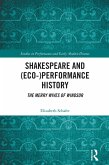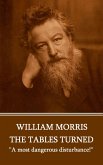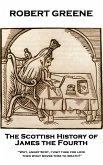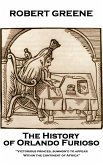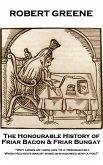John Ford was born in 1586 in Ilsington, in Devon, the second son of Thomas Ford of Bagtor in the parish of Ilsington and his wife Elizabeth Popham (d.1629) of the Popham family of Huntworth in Somerset.
The Elizabethan mansion of the Fords still survives today at Bagtor as the service wing of a later house appended in about 1700.
Details of his life are scare and some have a variance of truth about them. We have attempted to give the most plausible view of his life.
By 1602 Ford, had by most accounts, been admitted to Middle Temple in London, a prestigious law school but also a centre for literary and dramatic pursuits. Intriguingly whether he actually studied Law is unknown. A common arrangement at the time was to attend as a 'gentleman boarder'.
In 1606 Ford was expelled due to his financial problems. He then wrote and had published two poems Fame's Memorial and Honour Triumphant.
Both works seem to have been written in the hopes of gaining a patron. Fame's Memorial is a long elegy, composed of 1169 lines, on the recently deceased Charles Blount, 1st Earl of Devonshire. Honour Triumphant is a prose pamphlet, a verbal fantasia written in connection with the jousts planned for the summer 1606 visit of King Christian IV of Denmark.
His initial forays into playwriting began with other more senior and well-known collaborators such as Thomas Dekker, John Webster, and William Rowley.
From about 1627 to 1638 Ford wrote plays by himself, mostly for private theatres, but the sequence of his eight surviving plays cannot be absolutely determined, and only two of them can be dated with certainty.
However it is his most famous work 'Tis Pity She's a Whore, printed in 1633, where in the Prologue, Ford declares the play as "the first fruits of his leisure." Whether success dictated that statement or not it became his most well regarded, admired and most popular work.
Ford's outstanding reputation, is set mainly with his first four plays in which he was the sole author. Of these, 'Tis Pity She's a Whore is the most powerful. The narrative tells of, for the time, shocking tale of the incestuous love of Giovanni and his sister Annabella. When she is found to be pregnant, she agrees to marry her suitor Soranzo. The lovers' secret is finally discovered, but Soranzo's plan for revenge is outpaced by Giovanni's murder of Annabella and then Soranzo, at the hands of whose hired killers Giovanni himself finally dies.
Whilst Ford is clearly sympathetic to his protagonists he is in no way arguing any case for the brother and sister's unnatural union, but explores their isolation. Because of this unlawful relationship, their consciousness of their sin, and their sensual and at times even arrogant acceptance of it become a compelling part of the work.
The Lover's Melancholy is the best of Ford's other plays, all of which are tragicomedies.
Ford's austerely powerful themes are set off by subplots with minor characters and perhaps not the greatest of comedy, but together they outline him as the most important tragedian of the reign of King Charles I (1625-49).
His work is further distinguished by the highly wrought power of his blank verse and by characters, who are all frustrated and whose desires and efforts are stymied and, more often than not, are shut out by the dictates of circumstance.
He is revered today as a major playwright of the reign of Caroline era. His plays deal with conflicts between individual passion and conscience and the laws and morals of society at large, much of which is understood and still relevant to audiences today.
As mentioned before little is known of his personal life but his legacy with the works that have survived detail an immense contribution to the literary life of England. Certainly he was the most important playwright of his generation and has left a standard that few have and few others will achieve.
The Elizabethan mansion of the Fords still survives today at Bagtor as the service wing of a later house appended in about 1700.
Details of his life are scare and some have a variance of truth about them. We have attempted to give the most plausible view of his life.
By 1602 Ford, had by most accounts, been admitted to Middle Temple in London, a prestigious law school but also a centre for literary and dramatic pursuits. Intriguingly whether he actually studied Law is unknown. A common arrangement at the time was to attend as a 'gentleman boarder'.
In 1606 Ford was expelled due to his financial problems. He then wrote and had published two poems Fame's Memorial and Honour Triumphant.
Both works seem to have been written in the hopes of gaining a patron. Fame's Memorial is a long elegy, composed of 1169 lines, on the recently deceased Charles Blount, 1st Earl of Devonshire. Honour Triumphant is a prose pamphlet, a verbal fantasia written in connection with the jousts planned for the summer 1606 visit of King Christian IV of Denmark.
His initial forays into playwriting began with other more senior and well-known collaborators such as Thomas Dekker, John Webster, and William Rowley.
From about 1627 to 1638 Ford wrote plays by himself, mostly for private theatres, but the sequence of his eight surviving plays cannot be absolutely determined, and only two of them can be dated with certainty.
However it is his most famous work 'Tis Pity She's a Whore, printed in 1633, where in the Prologue, Ford declares the play as "the first fruits of his leisure." Whether success dictated that statement or not it became his most well regarded, admired and most popular work.
Ford's outstanding reputation, is set mainly with his first four plays in which he was the sole author. Of these, 'Tis Pity She's a Whore is the most powerful. The narrative tells of, for the time, shocking tale of the incestuous love of Giovanni and his sister Annabella. When she is found to be pregnant, she agrees to marry her suitor Soranzo. The lovers' secret is finally discovered, but Soranzo's plan for revenge is outpaced by Giovanni's murder of Annabella and then Soranzo, at the hands of whose hired killers Giovanni himself finally dies.
Whilst Ford is clearly sympathetic to his protagonists he is in no way arguing any case for the brother and sister's unnatural union, but explores their isolation. Because of this unlawful relationship, their consciousness of their sin, and their sensual and at times even arrogant acceptance of it become a compelling part of the work.
The Lover's Melancholy is the best of Ford's other plays, all of which are tragicomedies.
Ford's austerely powerful themes are set off by subplots with minor characters and perhaps not the greatest of comedy, but together they outline him as the most important tragedian of the reign of King Charles I (1625-49).
His work is further distinguished by the highly wrought power of his blank verse and by characters, who are all frustrated and whose desires and efforts are stymied and, more often than not, are shut out by the dictates of circumstance.
He is revered today as a major playwright of the reign of Caroline era. His plays deal with conflicts between individual passion and conscience and the laws and morals of society at large, much of which is understood and still relevant to audiences today.
As mentioned before little is known of his personal life but his legacy with the works that have survived detail an immense contribution to the literary life of England. Certainly he was the most important playwright of his generation and has left a standard that few have and few others will achieve.
Dieser Download kann aus rechtlichen Gründen nur mit Rechnungsadresse in D ausgeliefert werden.



